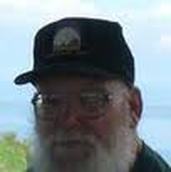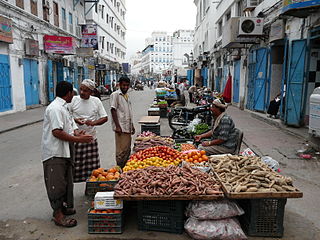 Traders on a street in Mukalla Traders on a street in Mukalla The casualty count varies but one source puts the toll at 35 dead in the Yemeni port city of Mukalla. Another twenty-five people were said to be wounded according to health official, Riad al-Jalili. Mukalla was held for a lengthy period by Al Qaeda in the Arabian Peninsula (AQAM) until a recent offensive by forces loyal to the recognized government of Premier Hadi drove them out in April after AQAM held it for a year. However, the attacks appear to have been launched by the Islamic State indicating their growing strength in Yemen. Mukalla is the capital of the Province of Hadramawt. A report in Al-Arabiya claims that at least 18 people were killed and claims the coordinated attacks were carried out by ISIS or the Islamic State. The attacks took place just as soldiers were about to break their day-long fast during the month of Ramadan. The IS claimed responsibility for the blasts through their on-line news agency Amaq. The first blast was at a checkpoint on the western approaches to Mukalla as the attacker detonated his suicide vest. Another blast was of a bomb-laden car at the military intelligence headquarters. The final blast was from an improvised explosive device that exploded just as the soldiers were to begin their meal. On May 23rd IS launched a suicide attack in the southern port of Aden that killed 40 army recruits. Militant groups have been able to take advantage of the civil war between Houthi rebels and the recognized government which is backed by the Saudis and other Gulf States. The government forces have been able to retake a considerable amount of territory in the south. The capital Sanaa and the north are still held by the Houthis. Al Qaeda in the Arab Peninsula (AQAM) has gained much territory during the civil strife. Yemeni security officials claim that though AQAM and the IS are ideological rivals and compete for fighters there is an overlap between the two groups. A security official said: “Sleeper cells still exist in Mukalla and we are working against them every day. Since the liberation of the city, security forces have arrested hundreds of Al Qaeda fighters in raids, uncovered plots and seized around 20 explosive cars.” According to a report in the Middle East Eye, in one attack the suicide bomber asked soldiers if he could eat with them and then blew himself up. The report gives a higher casualty figure of 42. The governor of Hadramawt Province, Ahmed bin Breyk said: "Mukalla witnessed five suicide attacks in four areas," At first the attacks were said to have killed 17 soldiers plus a woman and a child who were passing by but later the toll was raised to 42. The IS report claimed that 8 of its suicide bombers killed 50 Yemeni security forces. Militants still control several towns in the Wadi Hadramawt valley. The Pentagon admitted last month that a small number of special forces had been involved in the operation to drive Al Qaeda out of Mukalla.
0 Comments
Strikes appear to be escalating ahead of a humanitarian ceasefire scheduled to begin on May 12 and to last five days. However, Houthi officials claim that they have received no formal notice of the ceasefire and could not respond until they do so. Since the Saudi air strikes began at least 1,200 people have been killed over half civilians according to the UN. Over 300,000 have been displaced and many have fled the country altogether. The crisis began when negotiations for a new government with the Houthi rebels, who had extended their area of control to the capital and west last year, broke down. The president, Mansour Hadi, resigned but later escaped house arrest and fled to Aden where he claimed to be president and tried to set up a government to rival the regime created by the Houthis in Sanaa. He was attacked and fled to Saudi Arabia to the safety of the capital Ryadh where he claims to still be the legitimate president. He has strong supporters including the Gulf Cooperation Council, Saudi Arabia, and also the United States. He allowed drone strikes and was a strong supporter of the US war on terror against groups such as Al Qaeda in the Arab Peninsula (AQAP).
AQAP are enemies not just of Hadi and his government but of the Houthis as well, since the Houthi are a Shia sect and AQAP radical Sunnis. AQAP has taken advantage of the chaos in Yemen to greatly extend their reach and power often in league with local Sunni tribes. They have over-run a number of army bases easily and captured huge amounts of weapons. They now control the province of Hadramawt and its capital Mukalla, a port city. The US supports a humanitarian pause to deliver aid to conflict areas and US Secretary of State John Kerry has been pressing the Saudis to agree to a temporary ceasefire. A huge problem for the aid effort is that the Saudis insist that they control the distribution of aid. This is totally inconsistent with the UN position that aid should never be delivered by one of the parties to the conflict. If Saudi Arabia distributes the aid it would ensure that aid went only to the areas supporting or under control of their supporters. It would also ensure that Houthis would not agree to a ceasefire. UN officials have been quite critical of the Saudi-led blockade of Yemeni ports, designed to prevent any weapons from reaching the Houthis. The searches have created huge delays in delivery of fuel and food particular in areas controlled by Houthis. Johannes Van Der Klaauw, UN humanitarian coordinator for Yemen said: “We urgently need a resumption of commercial imports of critical goods, such as fuel, medical supplies and food. Without resumption of commercial imports, all basic services and markets will close down shortly.” In order to prevent an Iranian cargo plane from landing at an airport in the capital Sanaa, the Saudis bombed the runway making it unusable and preventing any aid being delivered using the airport. Critics claim that there will be no ceasefire and that the Saudi announcement was all meant as a show for Secretary of State Kerry. The "pause" in the Saudi-led operations was never likely to happen in any event because the Saudi foreign ministry made it conditional upon the Houthis disarming which they know will not happen. The Russians earlier called for a ceasefire in the UN Security Council but this was rejected. No doubt the US wants Saudi Arabia to at least make a gesture towards alleviating the humanitarian situation. Since April 21st Operation Restoring Hope which would shift attention to the political process rather than military operations and also protect the people is supposed to be in progress. The bombing never stopped and military operations have escalated with even some special forces now operating in Aden. There is no sign yet of any political breakthrough. Sources: http://news.yahoo.com/saudi-led-forces-conduct-airstrikes-yemens-saada-063441226.html http://www.aljazeera.com/news/2015/05/yemenis-ordered-leave-saada-province-150508145754277.html http://www.usnews.com/news/world/articles/2015/05/05/saudi-suspends-flights-at-airport-along-yemen-border http://abcnews.go.com/International/wireStory/kerry-hopes-win-pause-yemen-war-heads-talks-30839695 http://news.antiwar.com/2015/05/07/despite-talk-of-humanitarian-pause-saudis-vow-to-keep-attacking-yemen/ http://www.cnn.com/2015/05/07/middleeast/yemen-violence/ http://www.mcclatchydc.com/2015/05/08/266087/un-officials-unhappy-with-saudi.html
|
Like this writer's work please donate:
Ken Hanly
Ken is a retired philosophy professor living in the boondocks of Manitoba, Canada, with his Filipina wife. He enjoys reading the news and writing articles. Politically Ken is on the far left of the political spectrum on many issues.
Archives
November 2016
Categories
All
|
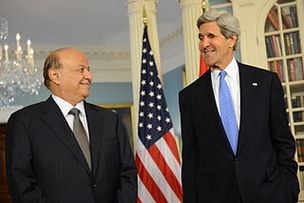
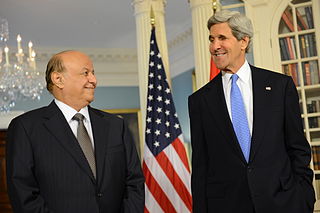
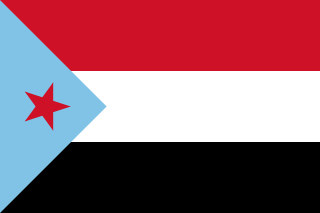
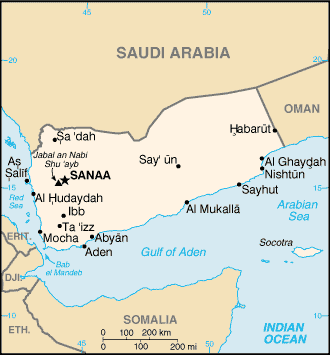
 RSS Feed
RSS Feed
